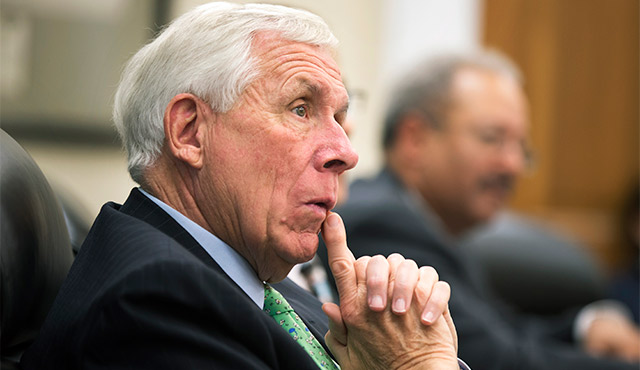WASHINGTON (CNS) — The U.S. House May 16 unanimously passed the Frank Wolf International Religious Freedom Act, giving the Obama administration and the U.S. State Department new resources to combat what the bill’s bipartisan supporters say is “a worldwide escalation” of Christian persecution and anti-Semitism.
U.S. Rep. Chris Smith, R-New Jersey, was the author of the bill named for former U.S. Rep. Frank Wolf, a Republican who represented Virginia’s 10th Congressional District from 1981 to 2015.
According to Smith, more than 20 years ago, Wolf “had the foresight to make advancing the right to religious freedom a high U.S. foreign policy priority.”
“Today religious freedom is still under attack and we must upgrade our programs and methods to meet the challenges of the 21st century,” said Smith, who has held more than a dozen hearings on religious freedom.
The newly approved measure, also known as H.R. 1150, requires that international religious freedom policies be integrated into national security, immigration, rule of law and other relevant U.S. foreign policy priorities; creates a “designated persons list” of individuals sanctioned for participating or directing religious freedom abuses; and expands diplomatic training on international religious freedom for all State Department diplomats.
It gives the U.S. president the authority to designate “non-state actors” as severe violators of international religious freedom and requires that the ambassador-at-large for international religious freedom will report directly to the secretary of state.
It also creates a “tier system” for the U.S. Commission on International Religious Freedom’s reports on countries of particular concern and a special watch list — similar to the tier system used in the State Department’s Trafficking in Persons Report.
For example, in the trafficking report, the State Department places each country on one of three tiers based on the extent of its government’s efforts to comply with the “minimum standards for the elimination of trafficking” found in Section 108 of the Trafficking Victims Protection Act.
“The U.S. House has taken an important step to empower government officials to address the persecution of religious minorities throughout the world,” Supreme Knight Carl A. Anderson said in a statement May 18.
He said the Knights of Columbus applauded the House for its vote and urged the Senate to “to quickly follow suit and the president to sign this important legislation into law.”
Anderson was among those who testified at Smith’s Dec. 9 hearing on assisting victims of Islamic State violence.
Smith said the world is facing “an unprecedented crisis of international religious freedom” that “undermines liberty, prosperity and peace.” The situation “poses a direct challenge to the U.S. interests,” particularly interests in the Middle East, Russia, China and sub-Saharan Africa, according to the congressman.
“A robust religious freedom diplomacy is necessary to advance U.S. interests in stability, security, and economic development,” Smith said in a statement.
The congressman is a member of the House Committee on Foreign Affairs and is chairman of its Subcommittee on Africa, Global Health, Global Human Rights and International Organizations.
“Where there is more religious freedom, there is more economic freedom, more women’s empowerment, more political stability, more freedom of speech, and less terrorism,” he added.
H.R. 1150 was co-sponsored by a leading Democrat, Rep. Anna Eshoo of California, and had more than 100 bipartisan co-sponsors. The Knights of Columbus is one of several religious organizations backing the measure, along with representatives of ethnic minority groups and nongovernmental organizations.
“From the founding of our nation, religious freedom has been a pillar of our democracy and it remains one of the most cherished values of our country,” Eshoo said. “This bill will improve U.S. efforts to promote religious freedom globally; better train and equip diplomats to counter extremism; address persecution; mitigate conflict and help the ambassador-at-large for religious freedom to coordinate religious freedom efforts.”

